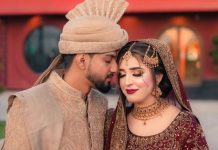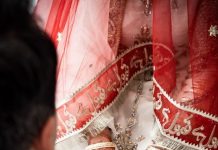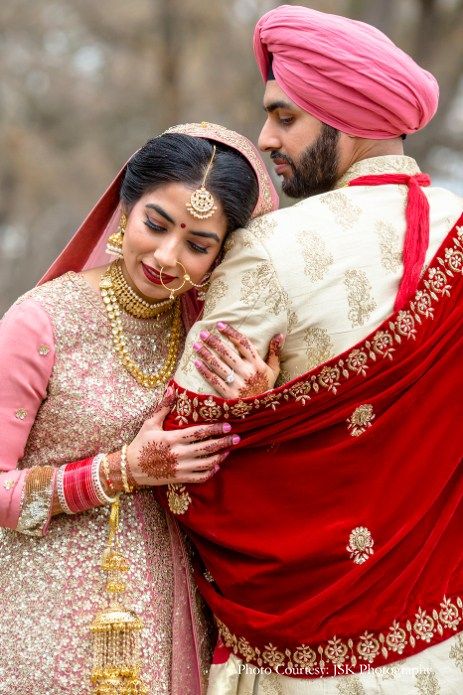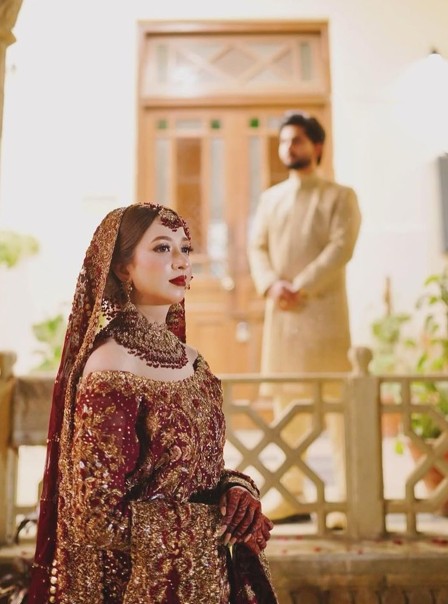Islamic Matrimony in Bangladesh: The Landscape, Values, and the Role of Gulshan Marriage Media
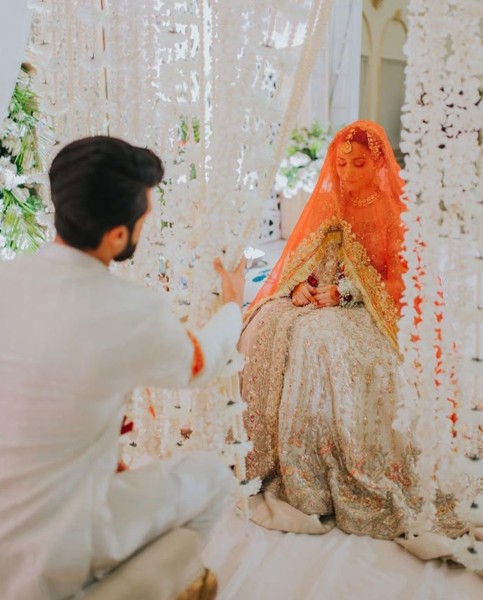
Introduction
Marriage is one of the strongest pillars of social, religious, and cultural life in Bangladesh. In the majority Muslim country, Islamic principles, family norms, community expectations, and modern pressures all merge together to shape how Muslims approach matrimony. Over time, the process of finding a life partner has evolved from chiefly family-arranged meetings to include marriage media (both traditional matchmakers and online/digital platforms).
One of the more prominent entities in this matrimony sector is Gulshan Marriage Media (including Bibahabd.com, “Gulshan Marriage Media”, “Gulshan Matrimony / Marriage Media**), which has become a trusted name for many seeking a spouse within Islamic frameworks in Bangladesh. An examination of Islamic matrimonial norms, and how platforms like Gulshan Marriage Media work within that environment, may help understand both benefits and pitfalls, and perhaps suggest improvements.
Historical, Religious, and Cultural Foundations of Muslim Matrimony in Bangladesh
Islamic Principles in Marriage
In Islam, marriage (nikah) is a solemn, binding contract, imbued with moral, legal, social, and spiritual significance. Some of the key Islamic precepts regarding marriage include:
- Nikah: The formal contract of marriage, usually officiated by a qazi or someone recognized as having authority under Islamic law, which makes the relationship lawful.
- Mahr (dowry or dower): A mandatory gift from husband to wife, agreed upon before or at the time of marriage.
- Consent: The mutual consent of both parties is essential. A bride’s consent is required.
- Walī: The guardian (often the father or male relative) of the bride has a role, especially in formalizing the marriage.
- Witnesses: The presence of witnesses (usually two adult Muslim witnesses) is required.
- Maintenance (nafaqa): The husband’s obligation to provide for the wife according to his ability.
These principles are embedded in the Shariah (Islamic law) and followed in Bangladesh, often interpreted through local customs and state regulations.
Traditional Social/Cultural Norms in Bangladesh
In addition to religious law, cultural and social norms heavily influence how marriages are arranged in Bangladesh. Some features:
- Family involvement: Parents, elders, and extended family often play central roles in identifying, vetting, and approving potential brides/grooms.
- Community/religious networks: Mosques, local communities, madrassas, social networks often act as intermediaries or matchmakers.
- Socioeconomic considerations: Education, profession, family background, geographic location, financial capacity often matter a lot.
- Religious practice: Degree of religious observance or sect, local interpretations, personal piety are often considered.
- Dowry expectations, wedding ceremonies: Local customs often add layers of expectations around dowry, gifts, ceremony size, and the social prestige of the wedding.
Legal Framework and State Role
Bangladesh has laws and regulations related to marriage, often influenced by religious law:
- The Muslim Family Laws Ordinance, 1961, governs many aspects of marriage, divorce, maintenance, etc., for Muslims.
- Legal recognition of marriage (registration) is important though in rural areas informal contracts may still occur without full registration.
- There are legal rights for women in marriage, including minimal conditions in nikah, maintenance, inheritance, etc.
The Rise of Matrimony Services and Marriage Media
As urbanization, education, migration, and technology have grown in Bangladesh, the ways people search for life partners have diversified. Traditional matchmakers (“ghotoks”), community referrals, family introductions, and mosque announcements remain important, but increasingly people are using:
- Online matrimonial platforms (websites/apps).
- Social media and Facebook groups/publishings.
- Marriage media companies which blend offline and online services: credible databases, profile verification, counseling, matching, sometimes even events.
These newer services aim to balance religious/cultural norms with modern expectations (privacy, compatibility metrics, education, career, personal preferences etc.).
Who Is Gulshan Marriage Media / Bibahabd.com
From what is publicly known:
- com is an initiative under Gulshan Marriage Media. It positions itself as a leading—or among the leading—marriage media services in Bangladesh. বিবাহবিডি ব্লগ BIBAHABD BLOG
- It focuses on providing reliable, secure matrimonial services, especially for Muslims, emphasizing authenticity and verification of profiles. বিবাহবিডি ব্লগ BIBAHABD BLOG+2Gulshan Media+2
- They employ certain verification mechanisms (three layers of verification noted in some blog coverage) to ensure that people using the platform are who they claim to be, that information is reasonably accurate. বিবাহবিডি ব্লগ BIBAHABD BLOG
- The services include biodata/profile exchange, matchmaking support, perhaps some counseling or guidance. While full details of all their features might not be fully public, their positioning suggests that they combine technological and human mediated services.
How Gulshan Marriage Media Aligns (and Sometimes Tensions) with Islamic Matrimonial Values
Given the religious importance of marriage, Islamically permissible processes (Shariah compliance) are crucial. Platforms like Gulshan Marriage Media function in a space where they must balance:
Alignments & Positive Contributions
- Facilitating compatibility: Allowing individuals to express preferences (religion, degree of observance, education, profession, etc.) helps match people with compatible life partners. This tends to help in reducing conflicts later.
- Verification and integrity: By verifying identity or background, they reduce risks of deception, misrepresentation, which is good from both legal and Islamic ethical perspectives (truthfulness).
- Privacy and propriety: A concern in many Muslim families is maintaining propriety, avoiding mixing beyond Islamic norms. Reputable platforms can provide more controlled, respectful communication channels, possibly with guardians, or mediated by matchmakers rather than free-for-all chatting.
- Reducing time & friction: In the traditional model, finding a match might take a long time, require many introductions. Organized marriage media can streamline the process, reduce burdens on families.
- Counseling and education: Good services include pre-marital counseling, advice around religious, family, psychological, financial, social compatibility. This is beneficial in Islam: marriage is more than a legal contract, it’s for peace, mercy, mutual rights/duties.
Possible Tensions / Challenges
- Overemphasis on superficial criteria: While Islam encourages compatibility, an overemphasis on wealth, beauty, status, or social prestige may overshadow character, religiosity, mutual respect. Platforms sometimes propagate unrealistic expectations.
- Privacy vs transparency: Balancing privacy (e.g. hiding certain personal information) while maintaining enough transparency to build trust. Also the risk of misuse of photos or biodata.
- Pressure from families / community norms: Even when platform facilitates preferences, families might insist on certain criteria (caste/sect, locality, social status) which might limit options.
- Commercialization and authenticity: Matrimonial services are businesses. There is risk of exploitation (charging high fees, hidden terms), misrepresenting features, less rigorous verification in some cases.
- Religious compliance: Ensuring every step aligns with Islamic rulings: proper nikah, valid witnesses, fair mahr, guardianship, etc. If platform users or facilitators neglect these, the marriage may be legal or socially acceptable but religiously problematic.
Operational Model of Gulshan Marriage Media (Bibahabd.com) — What They Do and How
From public sources, the model appears to involve:
- Profile / biodata registration: People provide personal, educational, religious, familial, sometimes financial details. Some verification of identity/documentation.
- Search / matchmaking: Based on criteria (religion, degree of observance, education, profession, geography, personal preferences etc.).
- Verification layers: Bibahabd claims “three-layer verification” (candidate, guardian, NID etc.) in certain write-ups. বিবাহবিডি ব্লগ BIBAHABD BLOG
- Support / consultation: Advice, perhaps mediated introductions, handling queries.
- Focus on trust and security: They advertise (in articles about them) that they aim for safe, authentic environment.
- Inclusivity: They list that their platform includes profiles from different backgrounds, and may accommodate divorcees, widows etc., though how broad this is depends on public statements. বিবাহবিডি ব্লগ BIBAHABD BLOG
Challenges Facing Islamic Matrimony Services in Bangladesh
Even for good platforms like Gulshan Marriage Media, there are many challenges:
- Digital divide: Not everyone has reliable internet or digital literacy—especially in rural areas. So many potential brides/grooms may be excluded or unable to fully participate in online-mediated matchings.
- Mistrust and fraud: Some services or actors may misrepresent profiles, misuse user data, or engage in deceit. So building and maintaining trust is tough.
- Socioeconomic disparity: People from lower-income groups may feel disadvantaged—both in terms of meeting criteria and access to paid services.
- Privacy and data protection: Sensitive personal information (religious practice, family background, photos) must be handled securely. Laws around data protection are still developing in Bangladesh; misusing data can have serious social consequences.
- Cultural/religious conservatisms vs modern expectations: Not all families accept “using a marriage media service”, or prefer traditional matchmakers. Tensions may arise about the degree of direct communication between prospective partners, photography, or what is revealed publicly.
- Legal and religious legitimacy: Ensuring marriages arranged have proper Islamic legal standing (valid nikah with witnesses, appropriate mahr, guardian involvement) and state registration is sometimes neglected.
- Emotional, psychological compatibility: Matching on paper does not ensure marital harmony; issues like personality, emotional maturity, expectations are harder to test or predict.
- Gender issues: Societal expectations for brides vs grooms differ; there may be more pressure on women regarding appearance, dowry, chastity, family obligations; services need to be sensitive to these imbalances.
Opportunities & Good Practices
Given the challenges, there are many opportunities for platforms like Gulshan Marriage Media to lead positive change. Some of these are:
- Enhanced verification & transparency: Strong procedures for verifying identity, background, guardianship; being transparent about how profiles are matched; feedback from users.
- Guidance & counseling services: Offering pre-marital counseling, sessions on rights and responsibilities, communication, managing expectations, financial planning.
- Religious advisory oversight: Having scholars or qualified religious advisors to ensure that what is being done is compliant with Islamic law—especially around nikah contracts, mahr, guardianship, etc.
- Promoting character & values: Not just education and status, but also kindness, religious and moral character, family values.
- Inclusivity: Welcoming widows, divorcees, people from different socio-economic backgrounds; making services affordable or with sliding scale fees.
- Local presence and offline touch: To reach people less digitally connected, outreach via local marriage counselors, matchmakers in community mosques, offices in different regions, information sessions.
- Safeguarding privacy: Technical security (secure storage, encryption), policies about sharing photos and personal data; options for anonymity, controlled visibility.
- Stories & feedback loops: Publishing success stories, also learning from disappointments; user surveys; ensuring platform evolves as feedback comes.
- Legal registration facilitation: Helping with registering marriages, connecting users to government/nazir offices, ensuring that legal paperwork is done properly.
Case: What Bibahabd / Gulshan Marriage Media Does Well & What Could Improve
From what is public:
Strengths:
- Reputation: Recognized in blogs and matrimony comparison write-ups as among the more reliable, trusted services. বিবাহবিডি ব্লগ BIBAHABD BLOG+1
- Verification: The three-layer verification helps increase trust among users. বিবাহবিডি ব্লগ BIBAHABD BLOG
- Reach: Present in multiple districts via national matchmaking agent network (as per some descriptions) and visibility. বিবাহবিডি ব্লগ BIBAHABD BLOG
- Inclusivity: At least some attention to including different types of profiles (e.g. divorcees, widows) is reported. বিবাহবিডি ব্লগ BIBAHABD BLOG
Areas that might be improved or are commonly cited as issues (or likely so):
- The depth of compatibility matching: beyond surface attributes (education, income, sect), how much attention is paid to personality, values, family dynamics? This is harder but crucial.
- Counseling: Are there structured pre-marital counseling programs as standard? Some users may not be aware or able to afford them.
- Transparency of fees: Whether premium services are clear, what exactly you pay for, refunds etc.
- Cultural expectations (dowry, family demands etc.) may still influence outcomes; platforms could provide more education or moderation in such areas.
- Bridging urban/rural and socio-economic divides: Ensuring that people in less advantaged areas or with less digital access are not left behind.
Legal, Ethical, Religious Considerations Specific to Islamic Matrimony in Bangladesh
Validity of the Nikah & Compliance with Shariah
For a marriage to be considered valid under Islamic law in Bangladesh, certain conditions must be met:
- Correct procedure for nikah: A nikah must be conducted by someone with proper authority (a qazi or recognized officiant), with appropriate witnesses, with wali for the bride if required.
- Mahr agreed and given: It must be specified and agreed to; even if deferred or symbolic, the obligation remains.
- Consent of both parties: Free consent without coercion.
- Registration: While religious law handles the religious validity, state-law registration grants legal/official recognition, which is needed for many legal rights (e.g. inheritance, maintenance, divorce procedures).
Platforms facilitating matches need to ensure that these aspects are made clear, and ideally help users ensure that when they proceed to marriage, these are properly observed.
Ethical Treatment of Users
- Avoiding deception: Misleading profiles (false photos, false credentials) are unethical.
- Respecting privacy: Sensitive personal data should be protected; misuse or sharing without consent is harmful.
- Equal treatment of all: Including those who are divorcees or widowed, people of modest means, etc. Discrimination (by class, locality, sect, etc.) though socially common, needs to be managed in light of Islamic ethics (principles of justice, respect).
- Fee fairness: Premium services are acceptable but should be transparent; exploitative pricing should be avoided.
Social responsibility
- Discouraging harmful practices: Dowry demands, extravagant weddings, caste/sect discrimination if they violate Islamic principles or human dignity.
- Encouraging compatibility and durability: Emphasis not just on finding someone, but on helping them build a lasting, healthy marriage, avoiding divorce when possible, through better selection, counseling, mediation.
The Process of Matrimony via Gulshan Marriage Media: Step-by-Step (Ideal & Real)
Here’s a possible typical flow for someone using Bibahabd / Gulshan Marriage Media, combining what is advertised / what is public with ideal good practice. This is instructive for users and can serve as model.
| Stage | What Happens / What Should Happen | Points to Observe (Islamic, Ethical, Practical) |
| 1. Initial Registration / Biodata Submission | Prospective bride/groom (or their guardian) fills in biodata: personal info, education, job, family, religious practice, preferences. Photos or profile picture. Some verification steps. | Be truthful in information; ensure that profile has necessary statements about religious practice etc.; understand privacy settings; ensure clear options for visibility of photos etc. |
| 2. Verification | Platform (or agent) verifies identity (e.g. national ID), guardian consent, maybe references. | This helps to prevent fraud; ensure safe and secure data handling; ask how much verification is done if unclear. |
| 3. Searching / Matching | User searches or is suggested matches based on preferences; platform may mediate recommendations; user can review options. | Prefer compatibility, shared values; avoid overemphasis on superficial factors. Families may be involved. Maintain decorum in communication. |
| 4. Communication / Interaction | Often via mediated messages, possibly with family/guardians involved; sometimes voice/video under controlled conditions. | Islamically acceptable interaction rules: modesty, avoiding forbidden situations, clarity of intention; respect boundaries; avoid inappropriate communication. |
| 5. Decision & Negotiation | Discussion between both families or individuals about mahr, living arrangements, compatibility, religious practices, expectations, rights and duties. | Must ensure consent; discuss life goals; expectations; no undue pressure; clarity in agreement. |
| 6. Nikah & Legal Formalities | Arranging nikah ceremony with proper officiant and witnesses; writing contract; registering marriage with state authorities. | Ensure that wali is present; mahr agreed; witnesses valid; registration as per law. |
| 7. Post-marriage support | Counseling if needed; mediation of conflicts; guidance on family life, rights/duties. | Helps with durability of marriage; managing expectations. |
Social Impacts & Outcomes
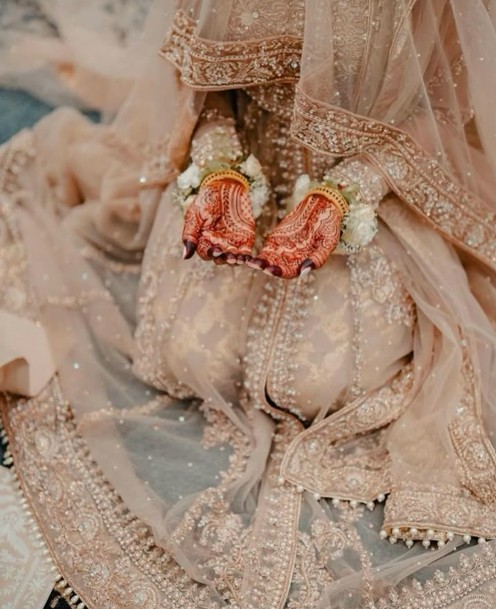
Good marriage media services can have far-reaching positive social effects, as well as challenges.
Positive Outcomes
- More people find partners who are compatible, respectful, religiously observant, which can lead to more stable marriages.
- Reduced burden or social friction, especially in urban settings where traditional networks are sometimes less accessible.
- Better awareness of rights (women’s rights, husband’s obligations, legal protections).
- Potential to reduce abusive or exploitative practices hidden in traditional matchmaking (fraudulent promises, misuse of dowry, misrepresentation etc.).
Risks / Negative Outcomes If Mismanaged
- Emotional disappointment or heartbreak if expectations are unrealistic.
- Pressure on individuals to conform to certain ideals (appearance, wealth) that may not be sustainable.
- Privacy breaches, misuse of photos or personal details.
- Marginalization of people (divorced, widowed) if service or societal norms stigmatize them.
- Sometimes faster marriages without adequate preparation lead to discord, divorce, or unmet expectations.
Comparative View: Gulshan Marriage Media vs Other Matrimony Options
| Characteristics | Traditional Matchmaking / Ghotok / Family Referrals | Other Online Matrimonial Platforms | Gulshan Marriage Media / Bibahabd.com |
| Personalization & Compatibility | High family input; but may lack formal compatibility criteria like personal values, religion observances etc. | Varying; many allow filtering on some religious/educational/profession criteria; but may be impersonal or generic. | Seems to attempt deeper verification, matching, and to combine digital service with human mediated inputs. |
| Verification / Authenticity | Relies on community reputation and direct introductions; sometimes less formal documentation. | Some verification, but risk of fake profiles or misleading info. | Public statements of multi-layer verification; greater emphasis on authenticity. |
| Religious Compliance | Usually strong, given family’s involvement; nikah etc done according to customary or local Islamic practice. | Varies; some platforms may neglect detail about mahr, wali, witnesses; may prioritize novelty. | Seeks to align with Islamic values: likely includes guardianship, mahr, proper nikah etc; users should check for these features. |
| Accessibility & Reach | Especially good in rural or less digitized communities; reliant on social networks. | Widely accessible to those online; may exclude those with less digital access. | Has both online presence and offline agents; could bridge better between urban and more remote users. |
| Cost | Usually lower or indirect costs (social visits, dowry etc). | Subscription fees or premium features; sometimes costless basic services. | Likely has premium services; cost transparency is key. |
Case Studies and Success Stories
While I don’t have access to private data or internal success rates, public blogs and platforms (including Bibahabd.com’s blog/tag sections) mention success stories: couples who met through the service, testimonies of satisfaction, etc. বিবাহবিডি ব্লগ BIBAHABD BLOG
Such stories serve multiple functions:
- Building trust for new users (showing that real people have benefited).
- Setting expectations about what kinds of matches are feasible.
- Inspiring improvements (by seeing what worked, what didn’t).
Ethical & Religious Advice for Users of Matrimonial Platforms
If you are someone considering using a platform like Gulshan Marriage Media, here are ethical and religiously-sensitive suggestions to make the process more fulfilling and safe:
- Begin with niyyah (intention) — keep in mind that you are seeking marriage for the sake of Allah, to build a lawful relationship, so your purpose guides your actions.
- Involve family / guardians appropriately — both for religious compliance and social support; but also ensure your voice is heard.
- Be honest in your profile — misrepresenting credentials, financial status, religious practice may lead to discord.
- Set priorities clearly — what matters to you: piety, character, communication, religious practice vs social status, physique, career etc. Be flexible but know non-negotiables.
- Prepare for marriage — educate yourself about marital rights and duties; expectations from spouses; conflict resolution; financial management; communication skills.
- Ensure nikah is valid — proper wali, witnesses, mahr, legal registration.
- Be cautious but compassionate — of course verify, check backgrounds; but don’t treat every mismatch as failure; respect the humanity of the other person.
- Respect boundaries — Islamic guidelines of interaction (modesty, avoiding forbidden speech, circumstances) should be observed during pre-marriage communication.
The Future: Trends & Recommendations
Looking ahead, what trends are likely, and what recommendations for platforms and users to make Islamic matrimony more constructive in Bangladesh?
Trends
- Increasing digitization: more apps, better matching algorithms, AI-driven compatibility scoring.
- More emphasis on counseling and psychological compatibility (mental health, values, lifestyle).
- Increased awareness of women’s rights, legal rights, due process.
- More cross-border / diaspora linkages: Bangladeshis abroad using matrimonial services to find partners in Bangladesh and vice versa.
- Greater regulation / oversight: data protection laws, consumer protection for matrimonial services, possibly religious oversight bodies.
Recommendations
For Matrimonial Platforms like Gulshan Marriage Media:
- Improve transparency about features, fees, verification, religious compliance.
- Incorporate regular pre- and post-marital educational content (webinars, workshops) about rights, duties, conflict resolution.
- Enhance support for rural users: local agents, low-cost access, digital literacy help.
- Strengthen data security and privacy policies; allow users control over visibility of photos, data.
- Provide options for guided or supervised communication to respect religious boundaries.
- Collect and publish feedback and metrics (success rates, user satisfaction) to build credibility.
For Users:
- Research several platforms; check reviews and testimonials.
- Ask about verification procedures.
- Don’t let external pressures (family status, social prestige) pressure you into mismatches.
- Prioritize long-term compatibility (beliefs, lifestyle, religious observance) over short-term attractions.
- Seek religious guidance where needed.
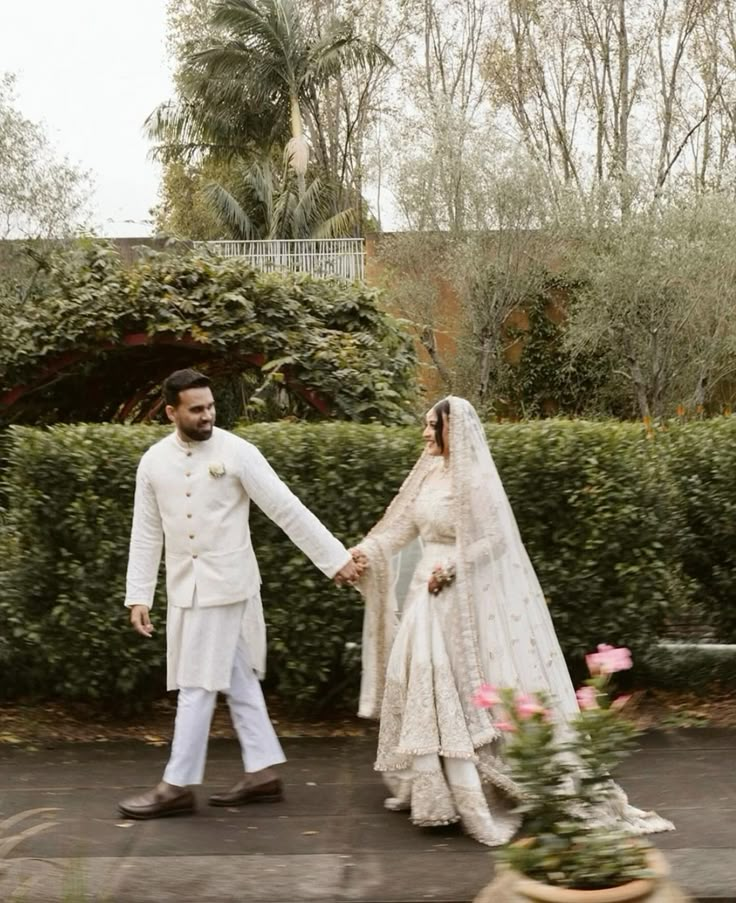
Conclusion
Islamic matrimony in Bangladesh is at an interesting crossroads: balancing deeply rooted religious and cultural traditions with the opportunities and challenges of modern life, global connectivity, technology, and changing social expectations. In this landscape, entities like Gulshan Marriage Media / Bibahabd.com represent a promising bridge: offering services that strive for authenticity, religious compliance, and modern efficiency.
That said, no system is perfect. For the best outcomes, users, families, and service providers must work in harmony: honesty, compassion, religious commitment, and a willingness to adapt and learn. When done well, marriage becomes more than a contract—it becomes a source of tranquility, mercy, and spiritual growth, as taught in Islam.

